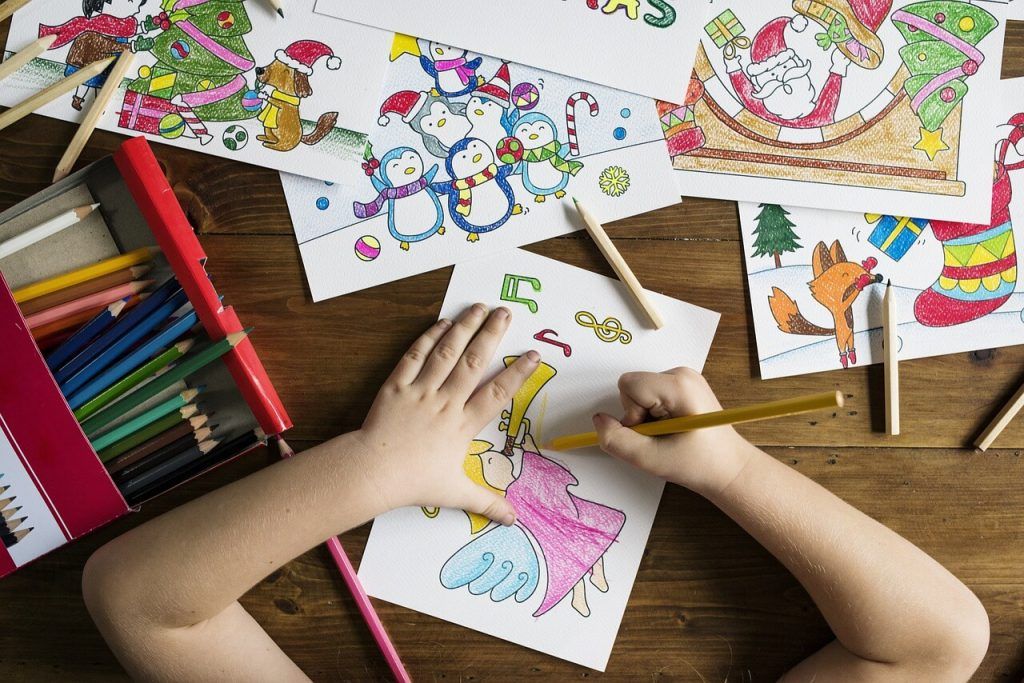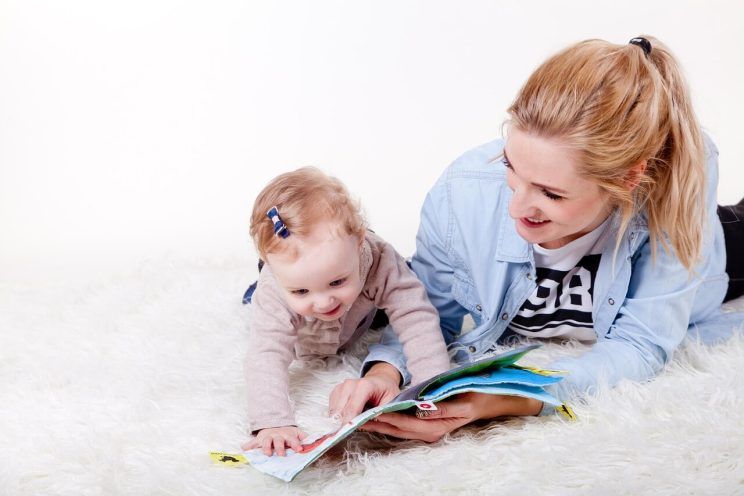Importance of Storytelling: 5 Ways Stories Help Children Learn and Grow
reviewed by Laila A. Lico
Updated on November 18, 2025
Stories are integral parts of our lives; we hear them and tell them all the time. Yet, how essential is storytelling for learning and kids’ development? From my experience, the importance of storytelling lies in its effect on language, values, and imagination. Stories captivate minds. But they aren’t just for fun. Read on to know more about the impact of storytelling on children and unlock new ways to help them learn and grow.
Key points
- Storytelling helps kids understand the world and ideas, comprehend its rules, develop language, values, and imagination.
- It improves cognitive development, confidence, and communication by enriching vocabulary, structuring thoughts, and supporting self-expression.
- The importance of stories lies in fostering empathy, emotional resilience, and cultural understanding.
- The interesting facts about storytelling: it allows brain synchronization, increases vocabulary, and reduces stress.
Why is storytelling important?
Storytelling is important because it affects how children understand ideas, communicate them, and think.
First of all, a good story can convey a complex theme so that even a kindergarten kid would understand. Secondly, through stories, children learn about emotions and morals. And thirdly, they offer a powerful toolset to teach reading, writing, and speaking.
Still unsure? Take a look at what great minds say about storytelling importance. Joy Cowley, a recognized children’s fiction writer, shares:
“Story is how we form our identities as families, as communities, as nations. It is how we shape what we do…Story is communication, but it is more than that; it forms us.”
How do stories help us understand our world?
Stories help us understand the world, offering a safe and understandable framework to explore concepts, cultures, and perspectives. When a kid hears a story, they learn how things work, why characters and people behave the way they do, and find a compass to navigate between what’s right and wrong. In other words, they get a roadmap to explore themselves and the environment.
But what about learning? There, the purpose of storytelling is to support children’s language and socioemotional development. There’s no need to resort to “importance of storytelling” quotes; instead, let’s explore a few practical examples:
- The well-known tale “The Boy Who Cried Wolf” teaches children about honesty and trust, and how lying can destroy it.
- The tale “The Ugly Duckling” teaches kids empathy, judgment, and acceptance.
So, sharing tales at home teaches kids about life, dangers, and roles, while at school, stories allow teachers to improve kids’ vocabulary and phonemic awareness.
But how can you, as a parent, apply storytelling in education? Not every story would work. That’s where one should take baby steps and ask for professional guidance.
How Brighterly сan help kids improve reading and storytelling skills
Brighterly is a math and reading platform that provides necessary guidance and support to kids who struggle to understand and create stories.
This platform offers personalized lessons with reading tutors who know the value of storytelling and offer space to hone important skills.
Why do Brighterly storytelling techniques work?
- Each Brighterly reading program is customized to a kid’s level, interests, and background, so that students feel confident telling their own stories.
- Reading tutors use stories not only as a fun and engaging way to learn, but as an effective strategy that prioritizes development and comprehension.
- One-on-one lessons allow more time to cope with struggles and work on specific issues, like vocabulary or reading.
Interestingly, with Brighterly, learning doesn’t stop at home, as it offers story elements worksheets that match grade levels and keep students engaged.
This kind of teaching through storytelling adds to motivation and gives a framework to develop self-awareness and share their experiences.
What are the benefits of storytelling?
- Develops creativity and thinking skills
- Builds communication and confidence
- Fosters empathy and understanding
- Supports emotional healing and coping
- Makes culture and knowledge stick
Note: Whether you use stories to improve reading or teach storytelling, there are a good number of benefits of storytelling for kids. For instance, facts are significantly more likely to be stuck in memory if they are presented via a story, while a good story helps knowledge retention far better than dry information and facts.
Advantage of storytelling #1: Creativity and thinking skills development
One of the primary benefits of storytelling is that it sparks imagination and offers food for thought.

How storytelling impacts creative thinking
- By imagining. When listening to a story, kids visualize characters and settings in their minds. If a story describes a magical forest, a kid’s brain would paint it internally. Such an active visualization adds to creativity and develops imaginative thinking.
- By asking questions. Besides, teaching through storytelling is likely to affect kids’ critical thinking. You just need to ask the questions, for instance, about characters or plot, basic elements of a story:
- Why did a character make a certain choice?
- What if the ending were different?
- How would you act if you were the main character?
- By making up stories. The benefit of internal storytelling for kids is that it invites them to the creation of their own narratives. By making up, they learn to structure their thoughts and explore ideas on their own. It also encourages self-reflection, as kids make sense of their own feelings and decisions.
Note: Give your kids a storytelling task to tell about their day as if they are astronauts on a space adventure or mission. It will activate their imagination and support thinking outside the box, a primary skill for future problem-solving.
Advantage of storytelling #2: Improved communication and confidence
One of the greatest benefits of storytelling is that it allows for improving communication skills and self-expression.

How storytelling builds strong communication skills
- Effect on literacy skills. Listening to stories involves picking up new words and learning how sentences are formed. It improves phonics and vocabulary, especially if combined with reading comprehension worksheets.
- Expression of ideas. In sharing stories, kids practice organizing their thoughts, improving their speech, choice of words, and the flow of ideas in the long run. Practice makes perfect, right?
- Confidence boost. The same goes for self-expression and confidence in education, especially reading and speaking. The importance of stories is that they train kids in the art of communication, the use of symbols, and social rules. All that affects how students can act in classes, at home, or among peers.
On the whole, storytelling teaches technical aspects that include voice modulation, pacing, and even body language. It’s no secret that it’s actively used by teachers to help kids with different struggles or reading disabilities.
Brighterly provides reading sessions with tutors who customize lesson plans to kids’ needs, whether they need support with ELA classes or just lack motivation or confidence.
Advantage of storytelling #3: Developed empathy and understanding
Except for communication, what more can be said about storytelling importance?
It’s also a key to building empathy! When kids read or hear a well-developed narrative, they have a chance to walk in someone else’s shoes. In particular, when children pay attention to the character’s feelings and motives, they develop emotional intelligence from a young age.

The ability to empathize with people from stories who have different experiences and perspectives supports their social skills. It allows them to approach life situations from different angles and be socially active.
Note: Research conducted in New York schools underlines the importance of storytelling to child development, showing that reading fiction impacts the levels of empathy and has a fair socializing influence.
Advantage of storytelling #4: Emotional healing and coping
Storytelling can also be a source of comfort for kids. Stories turn into instruments to gently address the fears, challenges, and feelings they may not know how to handle. Moreover, it can positively affect kids’ resilience and reduce stress levels.

What is the value of storytelling for mental health?
- Share common problems. When kids hear about a character overcoming a fear or issues, they may feel less alone and be sure that a solution exists.
- Give emotions a go. Another value of storytelling is that it can show what kids feel, even if they talk less about it. It can work with drawing exercises or visual stories.
- Introduce role models. Characters also give examples of how to behave or act in certain situations. Kids can see that it’s okay to ask for help or say sorry.
- Offers space for human connection. Reading aloud and sharing memories create moments of connection between a parent and a child.
On the whole, the importance of storytelling is that it allows kids to build resilience and find healthy coping mechanisms.
Advantage of storytelling #5 Better knowledge and culture retention
Other than that, stories are vessels to pass down culture, values, and identity. Via tales and family stories, kids learn more about their roots, environment, and world.

In multicultural settings, if kids exchange stories about a tradition and daily life, it fosters respect and mutual understanding.
Note: According to Kathy Short, a professor in the Department of Language, Reading and Culture at the University of Arizona, and Director of Worlds of Words, students who engage with international stories and literature shift away from a “tourist” view of culture and get deep insights into how people around the world live and think.
Overall, cultural learning through stories has positive effects on kids, as they:
- Hear cultural and personal stories that help understand family and oneself.
- Better comprehend customs and traditions introduced in context.
- Understand and stick to values as they are wrapped in memorable plots.
This is the power of oral storytelling. It connects them to the roots and heritage, offers codes to integrate into the community, and simply helps to remember the information that may be confusing at first.
And what about knowledge retention? Why is storytelling powerful for remembering information? Whether facts about culture, history, events, or humanity, stories can make them relatable, engaging, and easier to remember.
Facts about storytelling
- Stories help sync parents’ and kids’ brains
- Reading stories enriches vocabulary
- Storytelling lowers stress
Note: All the benefits of storytelling mentioned above are great arguments to try this learning approach at home. Yet, if you need some scientific or psychological facts about storytelling effect, the part below would provide some.
Fact #1: Stories help sync parents’ and kids’ brains
When talking about kids’ learning, the connection between kids and their parents is essential. Yet, the interesting part is that stories affect kids’ brains when parents read stories aloud to them during childhood.
Bedtime tales actually make a difference, underlining the importance of stories. At least that’s what a study by UK scientists underlines. It says that when parents read to their young kids, their brains actually synchronize.
How so? When parents read aloud or simply read together with a kid, the brainwaves fall into one rhythm. It also refers to the breathing rate, heartbeat, and brain rhythm.
Isn’t it a huge advantage of storytelling, especially in the early stages of kids’ development?
Fact #2: Reading stories enriches vocabulary
One more exciting point is that storytelling to kids can dramatically boost their vocabulary. In particular, researchers from Ohio State analyzed how reading stories affects the number of words they know. According to the study, reading one book a day implies that kids would hear almost 300,000 more words by the age of 5 compared to those who don’t read.
Considering the table below, it’s easy to see and understand the impact of storytelling on reading and vocabulary skills.
| Reading Frequency | Approximate Words Heard by Age 5 |
| Never read to | About 4,600 words |
| 1–2 times per week | Around 63,000 words |
| 3–5 times per week | Nearly 170,000 words |
| Once daily | Close to 297,000 words |
| Five books per day | Over 1.4 million words |
Fact #3: Storytelling lowers stress
Remember about emotional healing as an advantage of storytelling? Well, there’s real research backing this idea. According to PNAS, it has positive psychological effects. In particular, a half-hour storytelling session results in significant stress relief among kids.
Even though the research involved narrating stories to hospitalized kids, it showed that listening to stories increased oxytocin and decreased cortisol.
Cortisol is the stress hormone, while oxytocin is the hormone often linked to empathy and bonding.
In this case, what is the benefit of storytelling for kids? The ritual of storytelling can improve the well-being of a kid and foster security and trust.
Conclusion: Final words on importance of storytelling
It’s hard to ignore the importance of storytelling for kids; it’s enormous. Stories not only shape bedtime rituals, but they also provide the ground for the kids’ development.
Storytelling can contribute to the development of a student’s creativity, thinking, empathy, communication, psychological resilience, and understanding of culture. Whether at home or in a class, shared stories give kids tools to express themselves, be more confident, and understand the world better.
In the end, teaching through storytelling makes learning stick and allows key concepts to stay in kids’ memories. That’s a key to developing vocabulary and early literacy skills.
Ready to help your child grow through stories? Ask for professional guidance. Book free reading lesson to try Brighterly’s personalized tutor approach.
















